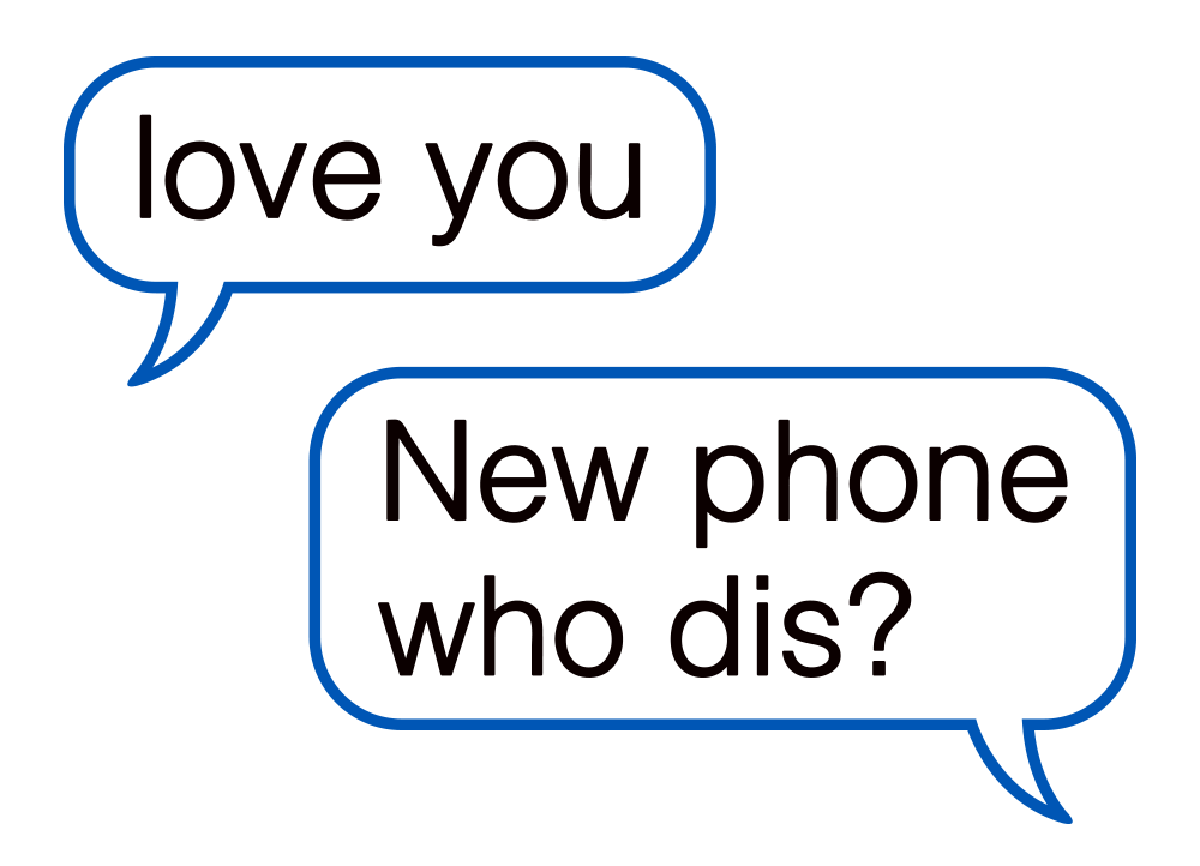 Why do narcissists hate it when you go No Contact? This just doesn’t apply to exes, friends or family with NPD, by the way. Typically, borderlines, histrionics and the rest of the Cluster B variety pack also hate it when reliable narcissistic supply (i.e., enablers and scapegoats) goes No Contact, too.
Why do narcissists hate it when you go No Contact? This just doesn’t apply to exes, friends or family with NPD, by the way. Typically, borderlines, histrionics and the rest of the Cluster B variety pack also hate it when reliable narcissistic supply (i.e., enablers and scapegoats) goes No Contact, too.
Basically, these individuals hate No Contact because it ends their control over you in one bold, brave move. If you stick with it, that is. No Contact (or Low Contact of you share children) neutralizes an abuser’s ability to keep you stuck in the FOG (fear, obligation, guilt) of abuse.
The NPD, BPD or HPD ex needs access in order to effectively manipulate you. If they can’t get to you directly or indirectly (via third parties or social media) they can’t deploy their usual bag of tricks. For example, gaslighting, projection, deceit, intimidation, Hoovers, guilt and/or shame tactics. Or, as I like to say, if a narcissist narcissists (or a borderline borderlines) in the forest and you’re not there to hear them, do they make a sound? Who gives a damn? You’re not there to hear it!
No Contact isn’t cruel.
Let’s clarify a few things. No Contact and ghosting are not the same thing. Going No Contact isn’t the silent treatment either. Additionally, No Contact isn’t meant to punish, hurt or teach the NPD, BPD or HPD ex a lesson. No Contact isn’t cruel, abusive, selfish or immature. It doesn’t make you an emotionless robot or mean that you’re really the narcissist.
Why do narcissists hate it when you go No Contact? Fun fact, when you start setting healthy boundaries and practicing self-care, narcissists, borderlines and histrionics will typically accuse you of being abusive. This simply isn’t true.
These individuals experience accountability, boundaries and consequences as abusive to them. The healthier you become via self-care, emotional detachment and boundaries the less willing you’ll be to tolerate their crazy. In this respect, No Contact isn’t really about the narcissist or borderline. Good luck trying to explain that to them! But then, if you’re going No Contact there’s no JADE-ing yourself.
No Contact isn’t about the crazy ex.
Again, No Contact is for you. It’s the space in which you heal and get your life back without the FOG of ongoing abuse. It provides you a vital respite from the gaslighter’s empty promises, guilt trips, lies and seductions they use to regain control. It’s one of the greatest acts of self-care you can give to yourself.
Why do narcissists hate it when you go No Contact? They stop being the center of your attention. In these relationships, you spend an inordinate amount of time focused on Crazy. Anticipating, preventing, extinguishing and cleaning up the proverbial fires that these drama queens and kings set.
Once you go No Contact, you have time reflect, reality test and recuperate. Time during which you might be able to recognize what a shitshow your partner is and that you don’t want to live like that anymore. And time to realize that you can, in fact, get along quite well without the NPD, BPD or HPD.
No Contact isn’t cowardly.
Ending an abusive relationship is brave, not cowardly. By the time most clients end their relationships with a narcissist, histrionic or borderline partner, they’re powerfully trauma-bonded. Their self-esteem is in the toilet. Many believe they won’t find love again.
Why do narcissists hate it when you go No Contact? It triggers one or more of their big five fears:
- The loss of control.
- Feeling or appearing inferior or inadequate.
- The loss of resources (e.g., money, status).
- Abandonment.
- Exposure.
If married with children, the men I work with have legitimate fears of false abuse allegations and family court bias. Not to mention the narcissistic/borderline injury and rage fueled smear campaigns, parental alienation and threats to reputation and livelihood. All of these things can and do happen when you break up with narcissists, borderlines, psychopaths and histrionics.
Why is No Contact so difficult for you?
Going No Contact can be difficult for a variety of reasons. If you’re having difficulty implementing and/or maintaining No Contact, ask yourself why and be honest. For example:
- Are you harboring hope (i.e., wishful thinking) you can fix the ex?
- Do you need to be seen as a good man or good woman?
- Are you addicted to the conflict and drama?
- Do you need to have the last word?
- Are you clinging to some rescuer-white knight fantasy?
- Do you need her/him to admit they’re wrong?
- Are you afraid they’ll magically become better with the next guy/woman?
- Do you believe you can’t live without her/him?
You’ll have a difficult time establishing and maintaining No Contact if you answered yes to any of these questions. If your ex has a personality disorder, the qualities and behaviors that drove you away, caused her to abuse you or discard you are highly unlikely to change. If you’re easily sucked into the drama, want to save her or don’t think you can live and be happy without her, you need to do some work on yourself to understand why you’re so dependent upon your ex.
Cold turkey.
Going No Contact is a form of going cold turkey. Or, “the period of extreme suffering that comes immediately after a person has stopped taking a drug on which they depend.” Relationships with narcissists, borderlines and histrionics are similar to addiction.
Just like heroin addicts can’t handle a little heroin and be okay, you can’t handle a little contact with your ex and be okay. Crack — in all it’s forms — is whack. In my experience, it takes approximately 6 to 10 weeks for the worst of the urges to dissipate. If you can ride the initial wave out, it will get easier.
Why can’t we be friends?
Because narcissists, histrionics and borderlines aren’t capable of healthy friendships either. And someone who maliciously abuses you without real remorse isn’t your friend. In the best of circumstances, two reasonably healthy and emotionally mature individuals can be friends after breaking up. An abusive relationship is not a healthy relationship, therefore, you cannot be friends afterward. This is an example of one of the grief stages — bargaining.
Don’t view No Contact as a way to win your ex back. This would be an example of you playing games, and this isn’t a game you can win. No Contact is to help you gain emotional, psychological and physical distance in order to heal and move forward in your life.
The healthy practice of No Contact isn’t about punishing an ex or getting them to miss you. It’s to establish a space in which you can gain clarity of mind and freedom from the emotional codependency on the ex.
P.S. Looking at the NPD, BPD or HPD ex’s social media is a form of indirect contact, so don’t do it. The only exception is if you’re gathering documentation for a custody evaluation and/or other divorce-related matters.
 Counseling, Consulting and Coaching with Dr. Tara J. Palmatier, PsyD
Counseling, Consulting and Coaching with Dr. Tara J. Palmatier, PsyD
Dr. Tara J. Palmatier, PsyD helps individuals with relationship and codependency issues via telephone or Skype. Since 2009, she’s specialized in helping men and women break free of abusive relationships, cope with the stress of ongoing abuse and heal from the trauma. She combines practical advice, emotional support and goal-oriented outcomes. If you’d like to work with Dr. Palmatier, please visit the Schedule a Session page or you can email her directly at shrink4men@gmail.com.
 Want to Say Goodbye to Crazy? Buy it HERE.
Want to Say Goodbye to Crazy? Buy it HERE.
Leave a Reply
You must be logged in to post a comment.